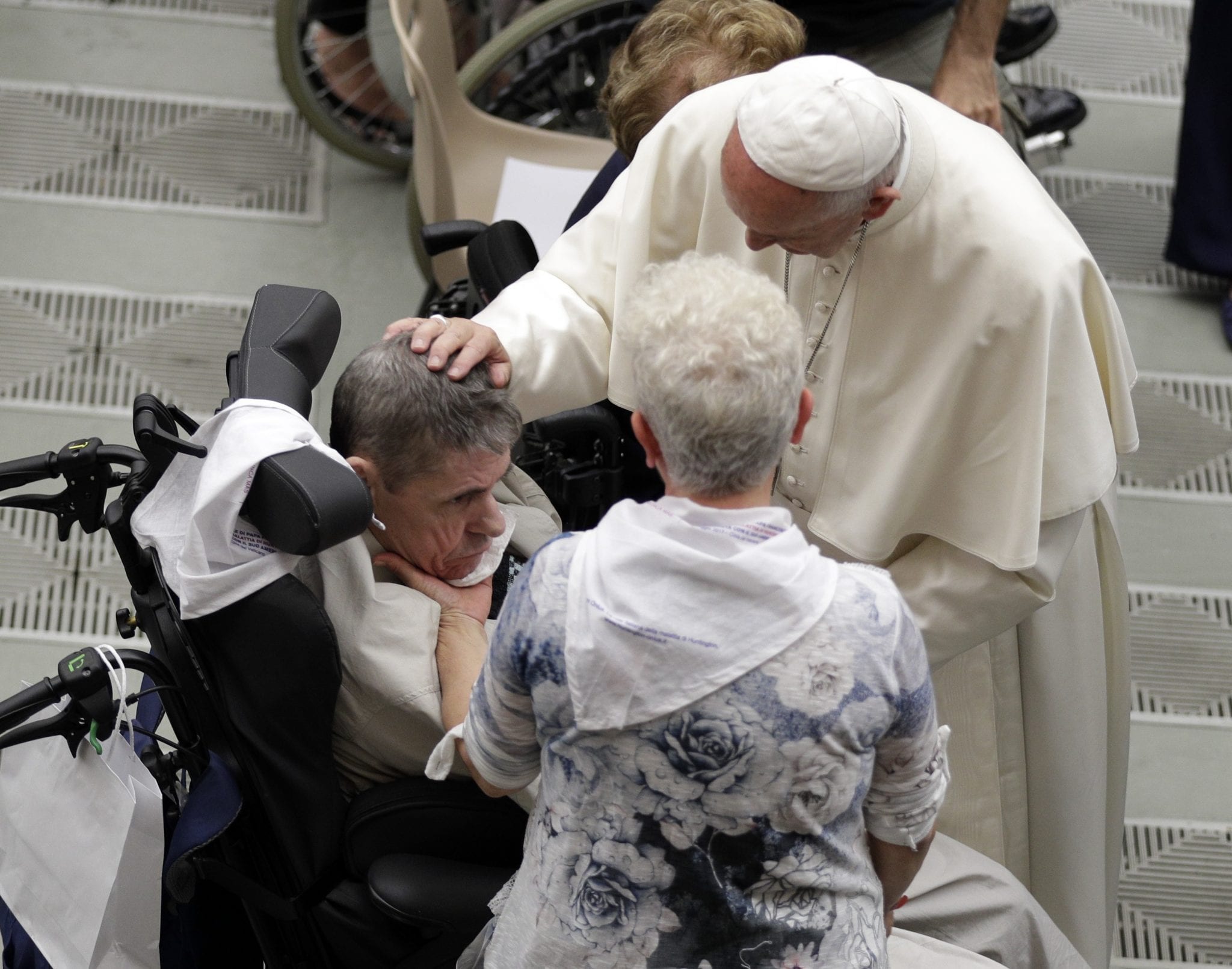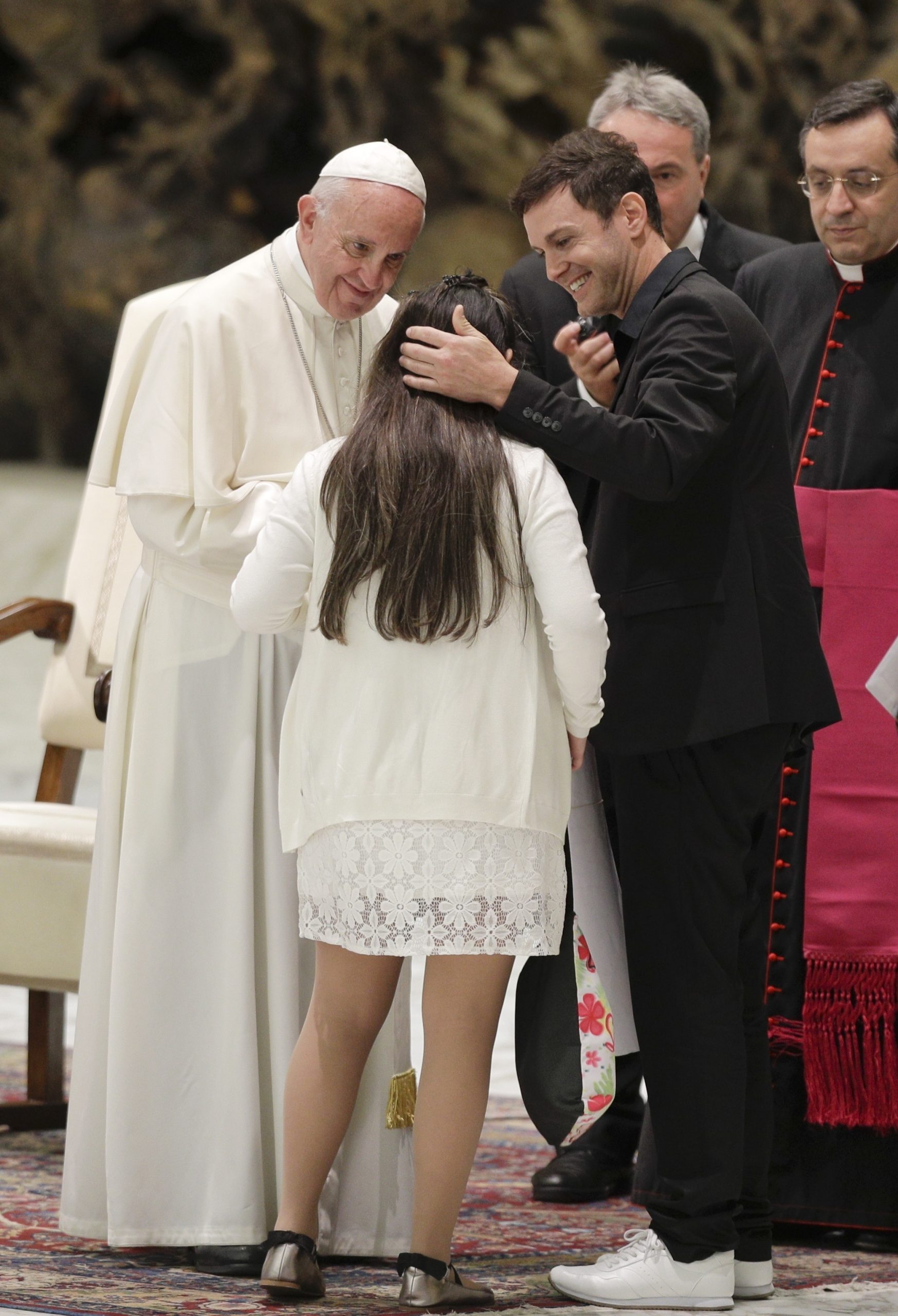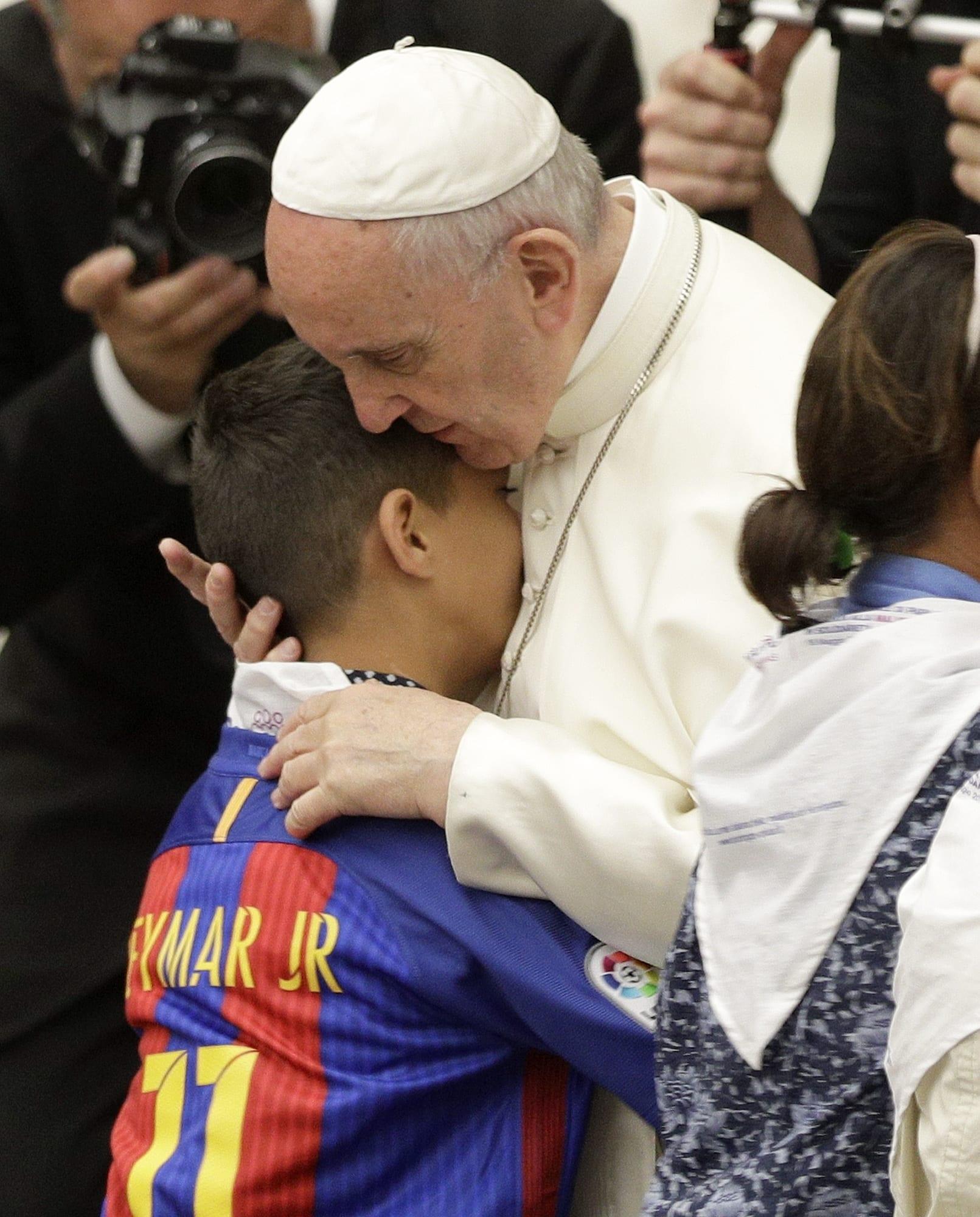ROME – Meeting a group of people suffering from a rare disease, Pope Francis told them that despite their illness, they are “precious in the eyes of God” and in the eyes of the Church. Addressing the scientists present in the room, he also said that no research justifies the destruction of human embryos.
“In many cases, the sick and their families have experienced the tragedy of shame, isolation and abandonment,” Pope Francis said to a group of people living with Huntington’s Disease, their families, neuroscientists, researchers and caretakers.
“Today, however, we are here because we want to say to ourselves and all the world: ‘HIDDEN NO MORE!’” he said, to an ovation by those present.
These words, Francis said, are pronounced with a conviction derived from Jesus who, throughout his ministry, “met many sick people; he took on their suffering; he tore down the walls of stigma and of marginalization that prevented so many from feeling respected and loved.”
In his remarks, the pope addressed each of those present specifically, with words for the patients and their families, but also for the doctors who treat them and the geneticists and scientists who “sparing no energy” have spent their lives studying and researching a treatment for Huntington’s Disease.

The audience took place in the Vatican’s Paul VI Hall.
Huntington’s is an inherited disorder that results in the death of brain cells. Although the symptoms may vary from one patient to the other, it affects mental abilities, generates a lack of coordination, and as it advances, uncoordinated, jerky body movements become more apparent.
Physical abilities gradually worsen until coordinated movement becomes difficult, making it impossible for the patients to speak. The mental ability of many decline into dementia.
Pope Francis told geneticists and scientists that “there is a great deal of expectation” regarding their work, since on it rests the hopes of finding a way to cure the disease, but also of improving the living conditions of those suffering from Huntington’s.
However, he said, finding the cure must be done in a way that doesn’t fuel the “throw-away culture” that at times “infiltrates even the world of scientific research.”
“Some branches of research, in fact, utilize human embryos, inevitably causing their destruction,” the pope said. “But we know that no ends, even noble in themselves, such as a predicted utility for science, for other human beings or for society, can justify the destruction of human embryos.”
Pope Francis took the time to greet each of those living with the disease, hugging each of them, many more than once, as they didn’t want to let him go. He blessed those who asked for it, and had words of comfort for those who needed them.
In some cases, he remained holding the hands of those who had the worse tremors, as if trying to carry the weight of the disease for them.
Not once did he seem rushed amidst so many people who were overcome with emotion.

Since Huntington’s is an inherited disorder, many of those affected by the disease who met with Francis on Thursday were daughters taking care of their mothers, knowing that they themselves might soon suffer the disease.
Before delivering his remarks, Francis was shown a video of several patients, all of them from some of the poorest neighborhoods of Latin America.
For instance, Zoe Cruz came with her mother, both from Puerto Rico. Zoe’s mother was in a wheel chair, barely capable of talking. Zoe herself soon will have the first symptoms appear.
Those who took part in the audience came from 20 different countries. This was the first time a global leader welcomed them.
Talking to those with the disease, Francis told them that for Jesus, “disease is never an obstacle to encountering people, but rather, the contrary.”
“Fragility is not an illness,” the pope said. “And disease, which is an expression of fragility, cannot and must not make us forget that in the eyes of God our value is always priceless. Disease can also be an opportunity for encounter, for sharing, for solidarity. The sick people who encountered Jesus were restored above all by this awareness.”
Addressing their families, he acknowledged their self-sacrifice too, as mothers, fathers, spouses, children and siblings, “accompany your family members on this difficult path.”
Lastly, the pope encouraged them “not to feel alone; not to give into the temptation of the sense of shame or guilt.”
“The family is the privileged place of life and of dignity, and you can cooperate to build that network of solidarity and of help that the family alone can guarantee, and which the family is first called to live,” he said.














